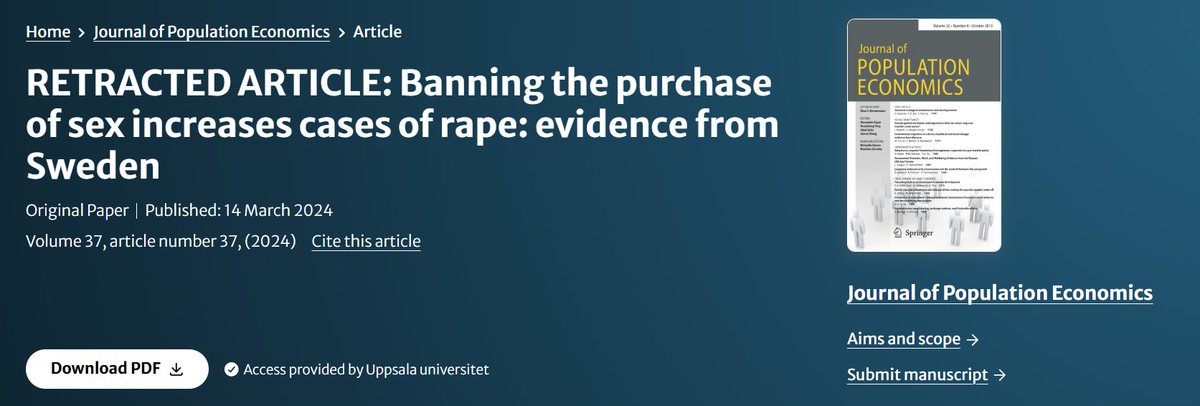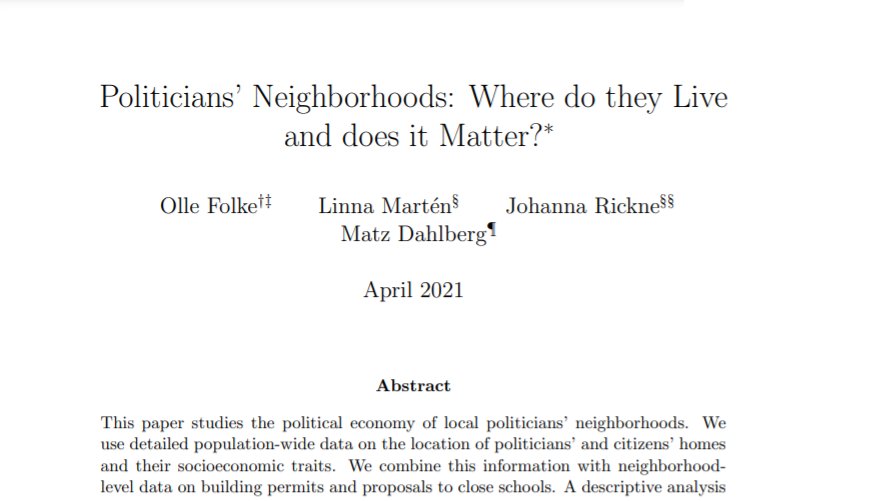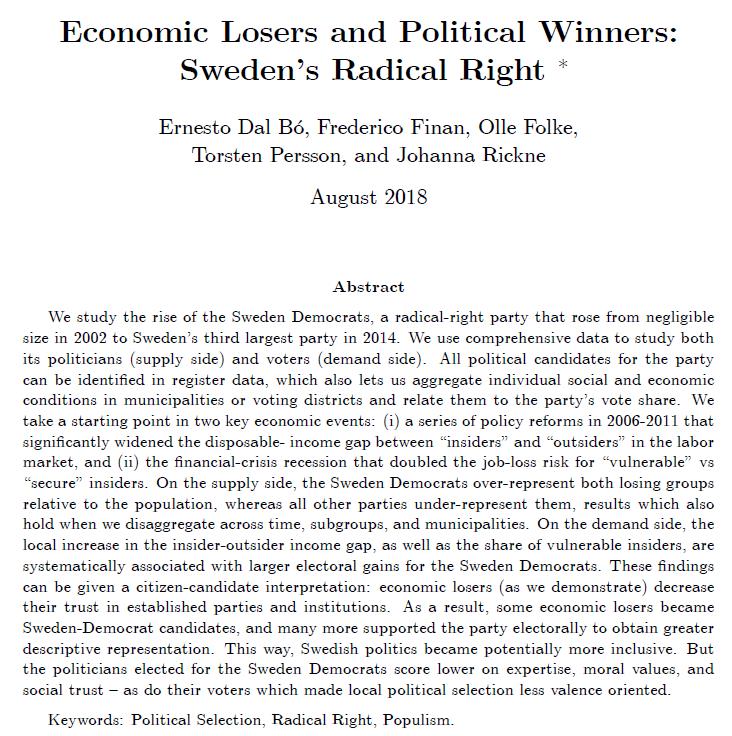
Professor of Economics at Stockholm University (SOFI) and Nottingham University. Research fellow at @cepr_org. I study gender economics and political economics.
How to get URL link on X (Twitter) App


 Why did this take so long? The journal took 12 months to process our partial replication based on the small portion of code provided by the author. It wasn't until then the full replication material became available to us and we could proceed with a full replication. 2/4
Why did this take so long? The journal took 12 months to process our partial replication based on the small portion of code provided by the author. It wasn't until then the full replication material became available to us and we could proceed with a full replication. 2/4

https://twitter.com/JohnHolbein1/status/1769516372059390039The paper argues that the number of reported rapes increased by 44—62% when the law was introduced in January 1999. Curiously, no such jump is visible when we plot the yearly number of reported rapes. 2/11


 We examine how women’s and men’s risks of sexual harassment are related to the workplace sex composition. With these risk patterns as a starting point, we then show how harassment leads to more gender segregation and wage inequality in the labor market.
We examine how women’s and men’s risks of sexual harassment are related to the workplace sex composition. With these risk patterns as a starting point, we then show how harassment leads to more gender segregation and wage inequality in the labor market.

 Politicians should represent their whole district and not favor their neighborhood. Yet, our Swedish data shows that they do. These results come from admin data for the geolocations of all local councilors' homes and all new building permits and school closures (1991-14). 2/11
Politicians should represent their whole district and not favor their neighborhood. Yet, our Swedish data shows that they do. These results come from admin data for the geolocations of all local councilors' homes and all new building permits and school closures (1991-14). 2/11

 Alexandra Laird and Emily Pronin recruited students on the Princeton University campus and for three survey experiments, each with ~100 participants. The compensation was candy and an entry into a lottery for $200. [2/15]
Alexandra Laird and Emily Pronin recruited students on the Princeton University campus and for three survey experiments, each with ~100 participants. The compensation was candy and an entry into a lottery for $200. [2/15]

 We measure sexual harassment in nationally representative survey data for the Swedish labor market (N=50,000). We use two questions (listed below) to create a binary indicator for harassment from colleagues and managers in the last 12 months. [2/16]
We measure sexual harassment in nationally representative survey data for the Swedish labor market (N=50,000). We use two questions (listed below) to create a binary indicator for harassment from colleagues and managers in the last 12 months. [2/16] 




 2,106 fictitious job applications for entry-level positions were submitted with randomized manipulation of GPA, gender, and college major. Call-back data shows that GPA mattered little for men's. For women, mid-level performers were called back more than others.
2,106 fictitious job applications for entry-level positions were submitted with randomized manipulation of GPA, gender, and college major. Call-back data shows that GPA mattered little for men's. For women, mid-level performers were called back more than others. 

 The Sweden Democrats entered parliament in 2010 and became the third largest party in 2014 — a rise that preceded the 2015 refugee crisis. We link the rise to two macroeconomic events that triggered income inequality and job insecurity for large labor market segments. 2/9
The Sweden Democrats entered parliament in 2010 and became the third largest party in 2014 — a rise that preceded the 2015 refugee crisis. We link the rise to two macroeconomic events that triggered income inequality and job insecurity for large labor market segments. 2/9 